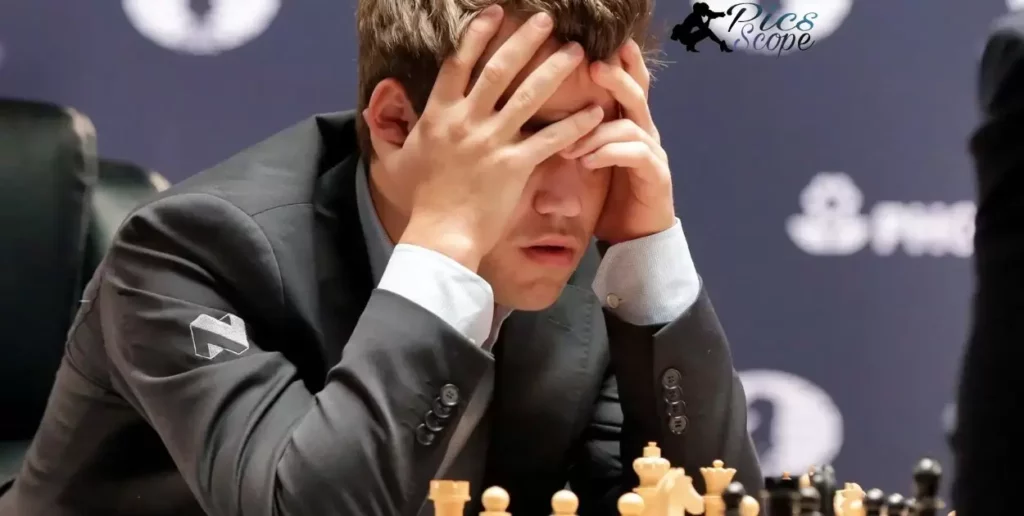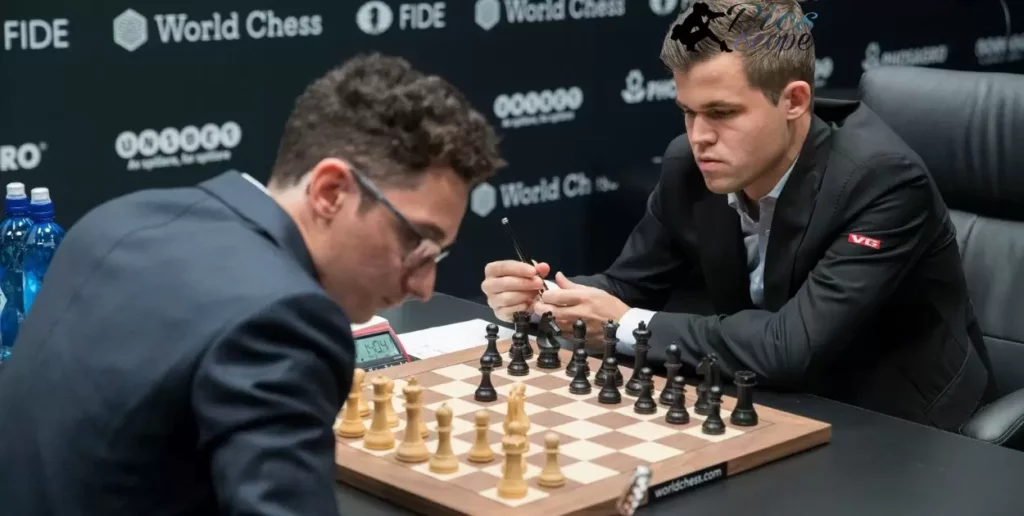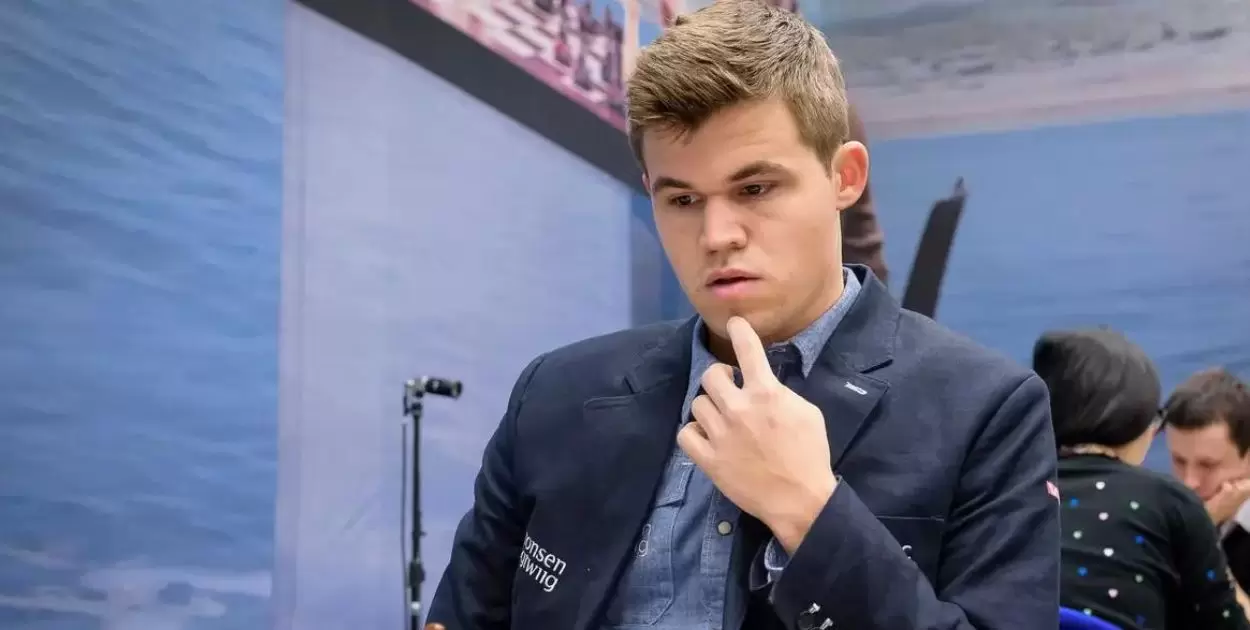Photographic Memory, or eidetic memory, is the remarkable ability to vividly recall visual information with precise detail. It involves mental snapshots that can be retrieved with exceptional accuracy, captivating both researchers and the public with its extraordinary nature.
Does Magnus Carlsen Have Photographic Memory? This question ignites curiosity about the cognitive prowess of the world-renowned chess grandmaster. It adds a layer of intrigue to Carlsen’s intellectual profile, exploring the potential link between photographic memory and his extraordinary chess skills.
While the claim about Magnus Carlsen’s photographic memory remains speculative, his unmatched cognitive abilities are indisputable. Carlsen’s strategic brilliance and exceptional memory for complex chess positions have solidified his status as one of the greatest players in history, captivating the global chess community with his unparalleled mental acuity.
Exploring Photographic Memory

Photographic memory is like having a mental camera in your head. It lets you remember things with super detail, almost like looking at a picture. Some people wonder if Magnus Carlsen, the chess champ, has this kind of memory.
People with photographic memory can recall images vividly and quickly. They can remember details like colors, shapes, and positions easily. It’s like having a photo album in their minds, and it makes you wonder if Magnus Carlsen’s exceptional chess skills are linked to this unique way of remembering things.
Unraveling the Mysteries of Eidetic Memory
Eidetic memory, often called photographic memory, is like having a mental photo album in your mind. People with this unique ability can remember things with super detailed pictures, almost like looking at a photograph. It’s not common, and not everyone has it, but for those who do, it’s like having a special superpower for remembering things visually.
Researchers and scientists are curious about how eidetic memory works. They want to understand the mysteries behind this extraordinary ability to recall images with such precision. By exploring the secrets of eidetic memory, they hope to uncover more about how our brains store and retrieve visual information.
How Does Photographic Memory Work?
Photographic memory works like a mental camera, capturing images with incredible detail. When someone has this ability, they can recall pictures in their mind as if they took a snapshot. It involves quickly and accurately storing visual information, allowing for vivid recollection.
In simple terms, the brain acts as a storage unit for pictures, making it possible to retrieve them with remarkable precision. The process is like flipping through a mental photo album, instantly recalling images from memory. This unique cognitive skill is fascinating, as it enables individuals to remember and visualize scenes with exceptional clarity.
The Role of Visual Information Retention
In comprehending the significance of visual information retention, we explore how our minds capture and remember images. It’s like taking mental snapshots that stay clear and detailed over time. Our brains act like cameras, storing these images for quick recall and recognition.
This process plays a crucial part in everyday tasks, from recognizing faces to remembering important details. When it comes to photographic memory, individuals with this ability excel at storing and retrieving visual information, making it a fascinating aspect of human cognition.
Now, considering the legal aspect, one might wonder, “Can you sue a photographer without a contract?” This question delves into the complexities of legal agreements and their role in defining the rights and responsibilities of both parties involved in a photographic endeavor.
Key Characteristics of Photographic Memory
Vivid Recall: Photographic memory involves the ability to remember visual information with remarkable clarity and detail.
Precision in Detail: Individuals with photographic memory can retrieve mental images with a level of accuracy that goes beyond typical memory functions.
Quick Retrieval: The stored visual information can be recalled rapidly, allowing for immediate access to specific details.
Image Permanence: Unlike fleeting memories, photographic memory creates a lasting impression, with images remaining vivid over time.
Enhanced Recognition: Those with photographic memory excel in recognizing and recalling visual stimuli, aiding in tasks such as facial recognition and pattern identification.
Visual Learning Advantage: Photographic memory contributes to effective visual learning, as individuals can absorb and remember information presented in a visual format more efficiently.
Limited to Visual Information: While powerful for images, photographic memory is specific to visual data and may not extend to other types of memory, such as auditory or tactile.
Individual Variability: The presence and strength of photographic memory can vary among individuals, with some exhibiting this trait more prominently than others.
Photographic Memory and Chess Prodigy Magnus Carlsen
Is Magnus Carlsen a photographic memory genius? Many wonder about the chess prodigy’s exceptional memory skills. Carlsen, the grandmaster, navigates complex chess positions with unmatched precision and strategic brilliance.
His cognitive prowess in chess sparks debates on whether his memory abilities border on the photographic. Critics question the alleged connection, but Carlsen’s strategic dominance fuels the fascination surrounding the potential link between chess genius and photographic memory.
Magnus Carlsen’s mental acuity isn’t just about moves; it’s a cognitive phenomenon. His ability to calculate multiple moves ahead sets him apart. In the chess world, Carlsen’s unparalleled memory for intricate positions raises intriguing questions. Whether or not he possesses photographic memory, Carlsen’s strategic brilliance continues to captivate chess enthusiasts globally.
Can Photographic Memory Enhance Chess Skills?
Photographic memory is often associated with exceptional cognitive abilities, but can it truly enhance chess skills? The table below outlines key aspects of this intriguing connection, examining whether individuals with photographic memory may have a distinct advantage in the world of chess.
| Aspect | Description |
| Memory Recall | Individuals with photographic memory may quickly recall chess positions. |
| Strategic Thinking | Enhanced visual memory might contribute to more effective strategic planning. |
| Pattern Recognition | Photographic memory may facilitate rapid identification of chess patterns. |
| Learning Speed | Faster memorization could lead to quicker mastery of opening strategies. |
Exploring these aspects can provide insights into the potential impact of photographic memory on chess skills, shedding light on whether this cognitive ability plays a significant role in the realm of chess mastery.
Magnus Carlsen’s Cognitive Brilliance
In chess, Magnus Carlsen’s cognitive brilliance shines brightly. He calculates moves with precision, showcasing an exceptional memory for intricate positions. His strategic mind navigates the chessboard, making decisions with quick, insightful clarity.
From an early age, Carlsen’s chess perspective has been marked by a keen ability to visualize the game’s complexities. His mental acuity allows him to plan several moves ahead, outmaneuvering opponents effortlessly. Carlsen’s chess prowess stands as a testament to his remarkable cognitive skills, making him a grandmaster celebrated for his strategic brilliance on the chessboard.
The Intriguing Connection Between Chess and Photography
Chess and photography might seem worlds apart, but they share a fascinating connection. In the fast-paced game of chess, players must visualize future moves, akin to composing a mental photograph of the board. The strategic thinking and planning in chess mirror the precision required in capturing and framing a photograph.
Magnus Carlsen, the chess prodigy, adds a layer of intrigue to this connection. His remarkable chess skills suggest a unique cognitive approach, sparking debates about whether his mind functions like a photographic memory.
As we explore the intriguing link between chess and photography, we delve into the strategic depths of the game and the mental acuity of players like Carlsen, uncovering the captivating parallels between these seemingly disparate realms.
Does Carlsen Possess Photographic Memory?
In the world of chess, people wonder if Magnus Carlsen has a photographic memory. Some say he can remember chess positions like pictures in his mind. The question is: Does Carlsen really have this special kind of memory?
To find out, we need to look at Carlsen’s amazing chess skills. Many chess experts praise his ability to remember and strategize during games. Some believe that this exceptional memory could be a key factor in his success. So, the investigation continues: Does Magnus Carlsen truly possess the remarkable ability known as photographic memory?
Analyzing Magnus Carlsen’s Cognitive Profile
Magnus Carlsen, the chess grandmaster, captivates enthusiasts with his exceptional cognitive abilities. He doesn’t just play chess; he strategizes with a sharp mind. Carlsen’s genius lies in his keen memory and quick thinking, making him a formidable opponent on the chessboard.
When we delve into Carlsen’s cognitive profile, we see a chess prodigy with a knack for remembering intricate game positions. His mental arsenal includes strategic brilliance and precise calculation, key elements in his success. As we analyze Carlsen’s cognitive attributes, the connection between his sharp mind and chess excellence becomes evident, showcasing a unique blend of intellect and strategic prowess.
Chess Prodigy or Photographic Genius?
Is Magnus Carlsen a chess prodigy, or does he possess photographic genius? Many wonder about the connection between his exceptional chess skills and potential photographic memory, questioning if his ability to remember complex chess positions is due to a unique memory capability, adding a layer of mystery to Carlsen’s intellectual profile.
Examining Magnus Carlsen’s cognitive brilliance, we find strategic prowess that goes beyond typical chess skills. Some speculate about the presence of photographic memory in his mental arsenal, wondering if it’s the secret behind his success. The debate continues, exploring the intersection of chess and potential photographic genius in the mind of Magnus Carlsen.
Unpacking the Chess Grandmaster’s Mental Arsenal
Magnus Carlsen, the chess grandmaster with a net worth that reflects his immense success, possesses an impressive mental arsenal. Strategically planning moves and outsmarting opponents on the chessboard with sharp precision, Carlsen’s mind functions like a well-tuned tool, allowing him to navigate complex positions effortlessly.
His cognitive brilliance, accompanied by a substantial net worth, isn’t just about raw intelligence; it’s a result of years of practice and a keen understanding of the game. Carlsen’s mental arsenal is a dynamic mix of intuition, calculation, and a deep understanding of chess principles, contributing to both his strategic dominance and financial success.
A Closer Look at Carlsen’s Strategic Brilliance

Intuitive Decision-Making: Carlsen’s strategic brilliance is marked by his ability to make intuitive decisions on the chessboard.
Dynamic Positional Play: He excels in adapting to changing game dynamics, employing a flexible and dynamic positional style.
Long-Term Planning: Carlsen’s strategic approach involves meticulous long-term planning, anticipating opponents’ moves ahead of time.
Tactical Precision: His moves showcase tactical precision, exploiting opponents’ weaknesses and creating opportunities.
Endgame Mastery: Carlsen’s strategic brilliance extends to endgames, where he demonstrates exceptional understanding and technique.
Psychological Edge: Beyond the board, he leverages a psychological edge, creating pressure and unsettling opponents strategically.
Photographic Memory in Focus
In chess legend Magnus Carlsen, we scrutinize the potential connection to photographic memory. Does Carlsen’s cognitive brilliance on the chessboard link to a photographic edge? To evaluate, we delve into his exceptional memory and strategic prowess.
Examining Carlsen’s cognitive attributes sheds light on his extraordinary chess skills. His ability to recall complex positions and think several moves ahead showcases a keen memory. By focusing on photographic memory, we explore the intriguing intersection of chess strategy and mental acuity in the world of Magnus Carlsen.
The Debate Surrounding Magnus Carlsen’s Memory
The discussion around Magnus Carlsen’s memory is a hot topic of debate, with people questioning if he truly possesses photographic memory, including Magnus Carlsen net worth. Some argue that his exceptional chess skills hint at this extraordinary cognitive ability, contributing to the ongoing controversy surrounding Carlsen’s memory.
Skeptics challenge the notion, while others believe his strategic brilliance in chess suggests a unique memory capacity. This lively debate keeps enthusiasts intrigued about the mental prowess of the chess grandmaster and adds a layer of complexity to discussions about Magnus Carlsen’s net worth.
Magnus Carlsen’s Photographic Memory
Is Magnus Carlsen’s memory like a photo album? Many people wonder if the chess grandmaster has a special kind of memory. Chess experts talk about Carlsen’s amazing moves, but is there more to it?
Some say Carlsen’s memory is like a camera – quick and accurate. Critics question if it’s really photographic memory or just exceptional chess skills. As we delve into the claims, let’s explore the intriguing connection between Magnus Carlsen and the idea of having a memory that’s truly like a photograph.
Photographic Memory in Chess
Chess and photographic memory – are they an unbeatable duo or just a tall tale? Some wonder if the claims about the existence of photographic memory in chess players are just fiction. Skeptics challenge the notion, questioning the practicality of such an extraordinary memory skill in the complex world of chess.
In the chess arena, debates persist about the role of photographic memory. Does it truly elevate players like Magnus Carlsen to new heights, or is it merely a fanciful idea? As enthusiasts weigh the evidence, the question lingers: is photographic memory in chess a fact, or is it a narrative woven by the fervent imagination of those captivated by the game’s intricacies?
Chess, Memory, and the Enigma of Magnus Carlsen
Chess and memory intertwine in the enigmatic mind of Magnus Carlsen. The chess grandmaster’s strategic brilliance on the board has sparked intrigue about the role of memory in his gameplay. Carlsen’s cognitive prowess fuels debates on whether his success is linked to a photographic memory, adding an intriguing layer to his enigma.
In the world of chess, Carlsen’s memory stands out as a vital asset. His ability to recall and analyze complex game positions suggests a keen memory at play. The intersection of chess, memory, and Magnus Carlsen remains a captivating puzzle for enthusiasts and analysts alike.
Carlsen’s Alleged Photographic Memory
Magnus Carlsen’s alleged photographic memory has sparked debates and discussions in the chess community. Critics question if his exceptional recall abilities contribute to his strategic brilliance on the chessboard.
Some chess enthusiasts argue that understanding the truth behind Carlsen’s memory could provide insights into the fascinating interplay between cognitive skills and chess mastery. As the controversy surrounding Carlsen’s memory unfolds, chess analysts are keen to examine concrete evidence supporting or refuting the claims.
The ongoing scrutiny sheds light on the dynamic relationship between memory capabilities and strategic thinking in the context of chess. Whether Carlsen truly possesses photographic memory remains a puzzle, adding an intriguing layer to the chess world’s ongoing fascination with his cognitive prowess.
Magnus Carlsen’s Chess Legacy and Mental Acuity

Magnus Carlsen, the chess grandmaster, is known for his brilliant mind and exceptional memory in chess. His legacy is not just about making moves; it’s a story of mental acuity and strategic brilliance. Carlsen’s chess dominance isn’t just a result of playing well; it’s a reflection of his sharp cognitive skills and quick decision-making.
In the world of chess, Carlsen’s legacy is like a masterclass in mental prowess. His strategic genius and quick thinking on the chessboard showcase the importance of mental acuity in the game. Carlsen’s chess legacy isn’t just about winning; it’s about the impact of a sharp mind on the enduring world of chess.
Carlsen’s Photographic Perspective
In chess, Magnus Carlsen sees beyond just the moves on the board. His mind captures the game like a mental photograph, remembering positions and strategies with incredible clarity. Carlsen’s approach goes beyond the ordinary, revealing a unique perspective influenced by what can be called a photographic memory for chess positions.
In each match, Carlsen’s ability to recall previous games and positions gives him a strategic advantage. It’s not just about making moves; it’s about visualizing the entire chessboard, much like flipping through a mental photo album. Carlsen’s photographic perspective in chess sets him apart, showcasing the fusion of strategic brilliance and a remarkable memory that defines his dominance in the world of chess.
A Strategic Maestro or a Memory Virtuoso?
Magnus Carlsen: Renowned for strategic brilliance in the game of chess.
Some argue he’s a memory virtuoso, recalling game positions with precision.
His ability to plan moves strategically sets him apart as a chess genius.
While not confirmed as having photographic memory, his cognitive skills are exceptional.
The debate continues: Is Carlsen a strategic maestro or a memory virtuoso?
Regardless, his unique combination of skills solidifies his status in the chess world.
Impact of Cognitive Abilities on Carlsen’s Chess Dominance
Magnus Carlsen’s chess dominance is strongly influenced by his exceptional cognitive abilities. His quick thinking and sharp memory enable him to calculate multiple moves ahead, giving him a strategic advantage over opponents. Carlsen’s cognitive prowess plays a pivotal role in his success on the chessboard, allowing him to navigate complex positions with ease.
In the world of chess, the impact of cognitive abilities on Carlsen’s gameplay is evident. His ability to recall intricate details of previous games, coupled with a keen understanding of various strategies, contributes to his consistent victories. Carlsen’s cognitive strengths shape his unique approach to the game, positioning him as a formidable force in the chess world.
Chess and Photographic Memory
Chess master Magnus Carlsen’s enduring influence is under scrutiny regarding his alleged photographic memory. Does Carlsen’s exceptional recall of chess positions hint at an innate photographic memory? Chess enthusiasts are delving into this intriguing connection, exploring how memory might play a pivotal role in Carlsen’s strategic brilliance.
As we evaluate the enduring influence of chess and photographic memory, it’s crucial to analyze Carlsen’s games. His ability to remember complex chess positions suggests a unique mental acuity, sparking debates on whether photographic memory contributes to his dominance in the chess world. This exploration sheds light on the fascinating intersection of chess strategies and the potential role of photographic memory in shaping a chess prodigy’s legacy.
Why is Magnus Carlsen’s memory so good?
Magnus Carlsen’s exceptional memory is a subject of keen interest, with many wondering why it is so remarkable. His ability to recall intricate chess positions and make strategic decisions with precision has intrigued enthusiasts worldwide. People explore whether Carlsen’s extraordinary memory is an innate talent, a result of rigorous training, or a combination of both.
Examining the factors contributing to Carlsen’s impressive memory, we find that his early exposure to chess and continuous practice play significant roles. Regular engagement in strategic games and the inherent demands of chess competitions likely contributed to the development and enhancement of Carlsen’s remarkable memory skills.
Do chess players have photographic memories?
Chess players possess remarkable memories, but the claim of having photographic memory is debated. They excel in recalling complex board positions, which hints at extraordinary cognitive skills, including the potential presence of photographic memory. Chess enthusiasts question whether the ability to memorize intricate game scenarios is indicative of a broader photographic memory.
In the world of chess, memory is a crucial asset. Players like Magnus Carlsen showcase exceptional recall, allowing them to strategize effectively, and this recall prompts the inquiry into whether their proficiency extends to photographic memory. This sparks curiosity about the cognitive aspects, including the role of photographic memory, contributing to chess mastery.
Does Magnus Carlsen memorize?
Magnus Carlsen, the chess grandmaster, engages in memorization, with “photographic memory” as a key aspect of his gameplay. His ability to memorize complex chess positions is evident in his strategic brilliance. Chess enthusiasts often ponder the methods Carlsen employs for “photographic memory” memorization, acknowledging its importance in his remarkable success.
In examining whether Magnus Carlsen utilizes “photographic memory” for memorization, it becomes clear that memorization is an integral part of his approach to chess. Through the study of games and moves, Carlsen demonstrates a practical aspect of “photographic memory” memorization, contributing significantly to his prowess on the chessboard.
Do all chess players have good memories?
Chess players, in general, rely on robust memories, including photographic memory, to excel in the game. Remembering previous moves and anticipating opponents’ strategies are integral to chess success. This skill isn’t exclusive to grandmasters; even casual players benefit from cultivating a good memory, especially in the form of photographic memory.
As we ponder the question of whether all chess players possess good memories, including photographic memory, it’s evident that memory skills vary. While some players naturally excel in this aspect, others may need to consciously enhance their memory through practice.
Is Magnus Carlsen naturally talented?
Exploring Magnus Carlsen’s skills raises the question: Is he naturally talented, or is his success a result of rigorous training? His early achievements in chess, becoming a grandmaster at 13, suggest an innate aptitude that captures attention. Observers note Carlsen’s intuitive understanding of the game, sparking discussions on the role of natural talent in his success.
Critics argue that Carlsen’s talent stems from years of dedicated practice rather than innate ability. They emphasize his work ethic and deliberate training as key factors shaping his exceptional chess abilities.
How did magnus carlsen learn chess?
Magnus Carlsen, inspired by his father’s passion for chess, embarked on his chess journey at the age of 5. Under his father’s guidance, Carlsen delved into the basic rules and moves, laying the foundation for his future in the game.
The early exposure sparked a passion that led young Carlsen to actively participate in local tournaments and clubs, marking the beginning of his chess exploration. Carlsen’s approach to learning chess was hands-on, involving countless games and drawing insights from practical experiences.
His chess education unfolded through continuous play, exposure to various opponents, and a genuine love for the game. Magnus Carlsen’s unique learning journey, influenced by early exposure, practical engagement, and a supportive environment, vividly illustrates the factors that contributed to shaping the skills of the future chess grandmaster.
Do all chess grandmasters have a photographic memory?
In the world of chess, the question arises: Does Magnus Carlsen, as a chess grandmaster, possess photographic memory? This inquiry into the mental abilities of chess experts, including Magnus Carlsen, leads us to explore the diverse cognitive skills within the chess community.
Examining the facts, it becomes evident that not every chess grandmaster, including Magnus Carlsen, relies on photographic memory. While Carlsen may have this extraordinary ability, others excel through strategic thinking, pattern recognition, and experience.
The diversity of cognitive approaches among chess grandmasters, including the unique skills of Magnus Carlsen, highlights that success in chess can be achieved through various mental strengths, dispelling the notion that photographic memory is a universal trait among these strategic minds.
Do all successful chess players have photographic memory?
In the world of chess, the question arises: Do all successful players possess photographic memory? Examining various chess champions, it becomes evident that success doesn’t solely hinge on photographic memory.
Chess mastery involves a combination of strategic thinking, experience, and pattern recognition. While some players may have impressive memory skills, many successful chess players rely on honed analytical abilities and a deep understanding of the game. The debate over the necessity of photographic memory in chess success adds an intriguing layer to the diverse strategies employed by players at the highest levels of the game.
FAQ’s
Is Magnus Carlsen considered one of the greatest chess players?
Yes, Magnus Carlsen is widely regarded as one of the greatest chess players in history.
Does Magnus Carlsen have a photographic memory?
The presence of photographic memory in Magnus Carlsen remains a subject of speculation and debate.
How did Magnus Carlsen become a chess grandmaster?
Magnus Carlsen became a chess grandmaster at the age of 13, showcasing remarkable talent and achieving the title through impressive tournament performances.
What is the secret behind Magnus Carlsen’s success?
The secret behind Magnus Carlsen’s success lies in his strategic brilliance, exceptional memory, and a deep understanding of chess dynamics.
Does Magnus Carlsen’s IQ play a crucial role in his chess brilliance?
While Magnus Carlsen’s IQ is not explicitly linked to his chess brilliance, his cognitive abilities, strategic thinking, and dedication contribute significantly to his success on the chessboard.
Conclusion
The question: Does Magnus Carlsen Have Photographic Memory? remains a captivating puzzle within the chess community. While the existence of photographic memory in Carlsen’s cognitive toolkit is yet to be definitively established, his unparalleled success in chess reflects a combination of strategic brilliance, exceptional memory, and a deep understanding of the game.
Magnus Carlsen’s remarkable journey as a chess grandmaster has left an indelible mark on the chess world, regardless of the ongoing debate surrounding his memory capabilities. Whether or not photographic memory is a contributing factor to his success.
Carlsen’s legacy stands as a testament to the multifaceted skills and cognitive abilities that propel individuals to the forefront of their chosen pursuits. The mystery surrounding Carlsen’s mind adds an intriguing layer to his chess prowess, leaving enthusiasts and researchers alike in awe of the complex interplay between memory, strategy, and success on the chessboard.







